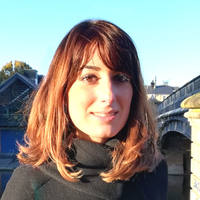Vento-Tormo Group
Cellular Genomics
Profile
 Cell-to-cell interactions trigger intracellular signaling pathways that activate gene regulatory programs and, ultimately, influence cell fate and function. To understand the function of cells in their original milieu, we take a systems biology approach that allows us to obtain a holistic overview of the tissue. We use state-of-the-art single-cell genomics and imaging tools at a high-throughput level. We have two main areas of interest: (i) immunology and (ii) development.
Cell-to-cell interactions trigger intracellular signaling pathways that activate gene regulatory programs and, ultimately, influence cell fate and function. To understand the function of cells in their original milieu, we take a systems biology approach that allows us to obtain a holistic overview of the tissue. We use state-of-the-art single-cell genomics and imaging tools at a high-throughput level. We have two main areas of interest: (i) immunology and (ii) development.
Immunology: Immune cells are spread throughout the body’s tissues and in circulation where they defend against infection and injury and contribute to homeostasis. Their response adapts to the specific challenges faced in different tissue environments. We use genomics tools to investigate the identity and function of tissue-resident immune cells in steady-state and inflammation.
Development: Cellular decisions made during fetal development determine cellular diversity and organization in complex tissues and organs. We seek to understand the complex gene regulatory networks underlying cell differentiation during fetal development and their regulation by the local milieu.
We are fascinated with the placenta, which is a unique transient fetal organ that protects the fetus against external insults whilst providing it with nutrients. The fetal placenta intermingles with the maternal immune cells from the uterus in a peaceful manner. We are interested in the immune responses at the placental-uterine interface in steady-state and when the interface is challenged with an infection. Studying placental infection is relevant, as it may entail a risk for the developing fetus and the mother.
Predict
 We are interested in using machine learning tools to integrate multiomics data and generate comprehensive maps of cells that can be used as a blueprint for the design of sophisticated artificial tissues. Essential to our work is the development of computational tools to build cell–cell interaction networks. We have developed CellPhoneDB.org, which is a computational method to predict cell–cell interactions from quantitative single-cell measurements. Recent updates of this tool include the incorporation of (i) spatial data, to consider proximity between interacting partners, and (ii) epigenetics data (eg., scATAC-seq), to connect external and internal cellular signals.
We are interested in using machine learning tools to integrate multiomics data and generate comprehensive maps of cells that can be used as a blueprint for the design of sophisticated artificial tissues. Essential to our work is the development of computational tools to build cell–cell interaction networks. We have developed CellPhoneDB.org, which is a computational method to predict cell–cell interactions from quantitative single-cell measurements. Recent updates of this tool include the incorporation of (i) spatial data, to consider proximity between interacting partners, and (ii) epigenetics data (eg., scATAC-seq), to connect external and internal cellular signals.
Perturb

We utilize organoids to design high-throughput perturbations that allow us to map cell-lineage hierarchies, dissect pathways mediating cellular differentiation and function, and understand the molecular mechanisms underlying disease. We work on multiple organoid models, including trophoblast organoids, which allow us to study tissue regeneration and development. Integrating our in vitro results with in vivo data allows us to give context to our perturbations, giving a more accurate interpretation of the data.
Informed by our cellular maps, we seek to improve the efficiency and accuracy of hiPSC-differentiation protocols using synthetic biology tools. We have a particular focus on the protocols that recapitulate hematopoiesis in a dish. We use an iterative computational/experimental framework where each step is compared to the in vivo data using computational and statistical methods.
Contact
We are actively looking for motivated students and postdocs to join the lab. We encourage potential postdocs to apply for independent funding. We are happy to brainstorm ideas and help with the development of the proposal. To apply for a PhD position in our group, please refer to the Wellcome Sanger Institute’s PhD Programme.
The lab is based at the Sanger Wellcome Institute (WSI) a dynamic, multi-disciplinary, innovative institute in Cambridge, UK. The WSI is embedded in the Genome Campus where shares space with the European Bioinformatics Institute (EBI) facilitating the collaboration between both institutions. All lab members will work closely and have the opportunity to learn experimental work and computational analysis.
We offer a friendly, collaborative atmosphere and direct one-to-one supervision. If you are interested in joining our group, please contact Roser Vento-Tormo at rv4@sanger.ac.uk.
Core team
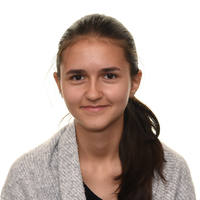
Dr Anna Arutyunyan
Postdoctoral Fellow
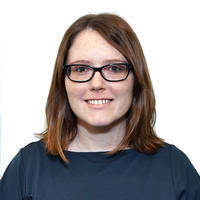
Dr Loren Gibson
Business Analyst and Process Improvement Lead

Tarryn Porter
Senior Scientific Manager
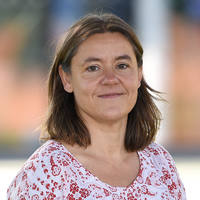
Maria del Carmen Sancho Serra
Advanced Research Assistant
Previous core team member
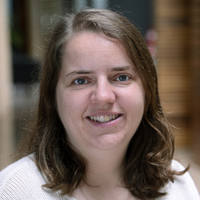
Dr Clara Alsinet-Armengol
Postdoctoral Fellow
Related groups
Partners
We work with the following groups
External
Society for Endocrinology
Funding - Early Career Grant - Hassan Massalha
Hassan Massalha was awarded the Early Career Grant from the Society for Endocrinology in 2023.

Vento-Tormo R, …, Teichmann SA. Single cell reconstruction of the early maternal-fetal interface in humans. Nature 2018; 563: 347-353. doi: 10.1038/s41586-018-0698-6. Epub 2018 Nov 14.

Svensson V, Vento-Tormo R, Teichmann SA. Exponential scaling of single-cell RNA-SEQ in the past decade. Nat Protoc. 2018; 13: 599-604. doi: 10.1038/nprot.2017.149. Epub 2018 Mar 1.

